You are here
- Home
- Research
- Culture and Social Psychology
- Research Projects
Research Projects

Building Global South-South solidarities to redress inequalities (Geetha Reddy)
In this transdisciplinary research challenge, we focus on understanding the impact of British coloniality on racism and marginalization in South Africa and Malaysia. One of the project’s key research aims is to contribute a deeper, decolonial understanding of racism by focusing on global South accounts of coloniality and decoloniality. The project will also focus on developing transformative action to arrest the spread of precarity, racial capitalism and anti-Black racism forged through colonisation and the creation of indentured labourers in the two countries.
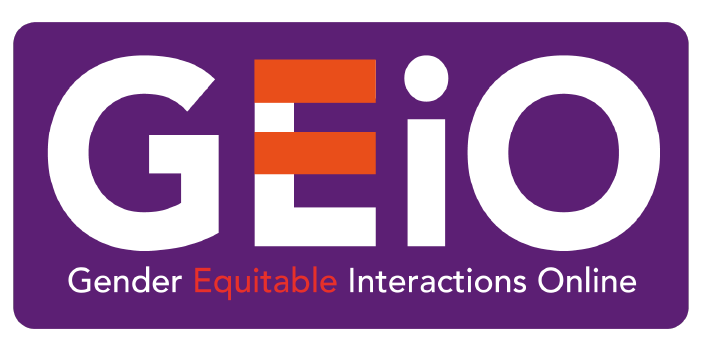
Gender Equitable Interactions Online (Lisa Lazard and Rose Capdevila)
Funded by EU Commission Grant CHANSE, the Gender Equitable Interactions Online (GEiO) project investigates the role of gender in online work meetings across four nations (Germany, Iceland, Spain and the UK). Research exploring how gender becomes relevant to videoconferencing at work remains in its infancy. Existing investigations suggest that with the exponential rise in digitally mediated working patterns and new reliance on videoconferencing platforms, organisations are unready to address gender inequality online.
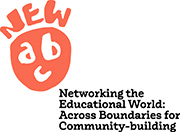
NEW ABC: Networking the Education World: Across Boundaries for Community-building (Sarah Crafter)
This project is funded by the European Commission’s Horizon 2020. The ‘NEW ABC’ will carry out innovative activities in learning settings aimed at enhancing the lives of migrant children and young people in education using participatory and co-creation approaches.
In the UK, academics from The Open University (Prof. Sarah Crafter & Dr. Nelli Stavropoulou) and Oxford Brookes University (Prof. Guida de Abreu) are running a two pilot actions. The first pilot action is titled ‘Empowering Young Translators’. The aim of this pilot action is to work with young people (aged between 13-18 years old) who translate and interpret for peers, family and the local community to develop and design resources to improve the cultural, social, emotional and wellbeing elements of being a young translator. Taking a participatory approach, the young translators will be trained as young researchers as part of a Young Translator Club, and then use those skills to develop, design and then evaluate resources aimed at improving understandings of young translating as a caring practice.
In the second half of our project, the UK team will undertake one of the innovation pilot actions developed by the Cyprus team titled ‘Adventures of the Little Prince’. Using the literary work by Antoine De Saint-Exupery, “the Little Prince”, the aim of this pilot action is to build the resilience of migration children by reshaping the narratives of their experience to enable them to feel included in the school environment.
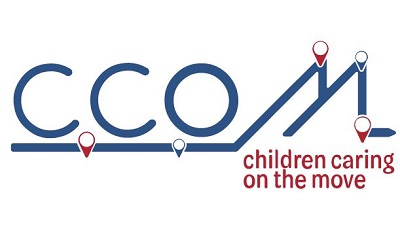
Children Caring on the Move (Sarah Crafter)
The Children Caring on the Move (CCoM) project explores separated child migrants’ experiences of care, and caring for others, as they navigate the complexities of the immigration-welfare nexus in England. CCoM starts from the premise that care is not necessarily limited to that provided by an adult or the state, but can be provided by separated children themselves. This project asks:
- How do separated migrant children, and those involved in the care of separated children, make sense of and value care relationships and caring practices?
- How do separated child migrants build, sustain and navigate care relationships and caring practices in the immigration-welfare nexus?
- What economic, social and political factors shape the priorities of relevant stakeholders and institutions, and how do these affect the treatment of separated children?
- What are the theoretical and policy implications of these potentially heterogeneous understandings and practices of care within the context of the tension between protection and immigration control?
The project has three Work Packages: Separated child migrants’ care relationships and caring practices, Adult stakeholders’ perspectives on care relationships and practices, and The ‘cultural political economy’ of care for and by separated child migrants.
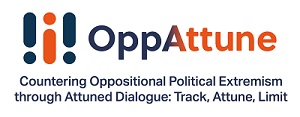
OppAttune: Countering Oppositional Political Extremism through Attuned Dialogue - Track, Attune, Limit
OppAttune is a three-year, €3.16 million Innovate UK/Horizon-Europe funded project which involves 17 partners from the European Union and beyond. OppAttune tracks the evolution of oppositional extreme ideologies and protectionist decision-making, develops an innovative attunement model, and tests a series of interventions at the national and transnational levels which limit the spread of extremism. Rather than focusing on political extremism which engages in hate speech or incites violence, the aim is to understand and limit the spread of extreme narratives which occur during seemingly ‘common sense’ discussions about polarising issues – i.e.: ‘everyday extremism’. CuSP members will be collaborating with international partners to explore and limit the spread of such everyday extremism. Prof. Kesi Mahendran is lead scientific coordinator on the project and is joined by Professor Eleni Andreouli, Dr Sandra Obradovic, Dr Evangelos Ntontis, and Dr Anthony English (as a post-doctoral research fellow). The project grant also funds two PhD studentships, both of which are led by international students Tetiana Shyriaeva and Evangelia Vergouli (Ukraine and Greece respectively). The project intends to achieve its aim to track, attune, and limit the spread of political extremism at different levels by achieving the following: (1) Create pathways within democracy by mapping the historical context and socio-legal factors of 16 countries (June 2024), (2) Benchmark, develop and test a new Everyday Extremism scale in 16 countries (March 2025), (3) Create Five Country Extremism and Living Democracy reports for stakeholders (July 2025), (4) Offer visualisations on the evolution of extreme political narratives in Europe via social media data mining (Sep 2025), (5) Develop the Attunement Model and disseminate to six target groups (Jan 2026), and (6) Limit the spread of extreme narratives in eight countries (Jan – March 2026).
Please follow #OppAttune or visit our website.

G-Versity
G-VERSITY is a European Training Network project about Achieving Gender Diversity. It is an interdisciplinary and intersectoral doctoral training network for early stage researchers. G-VERSITY aims at fostering new kinds of expertise and jobs needed in Europe to help employers overcome the underrepresentation of women, men, and sexual and gender minority Groups (SGMs). The network constitutes a prototype for innovative doctoral training on gender diversity research. G-VERSITY joins 9 leading European research groups from psychology, education, management, business administration, media and communication studies with 9 non-academic partners, a city administration, two public broadcasting service, a media training centre, an aviation training centre, and 3 non-profit organisations. It has received funding of 4 Million Euro from the European Union’s Horizon 2020 research and innovation programme under the Marie Sklodowska-Curie grant agreement No 953326. Professor Peter Hegarty is a Co-Investigator on this project and Shannon O’Rourke is conducting a G-VERSITY PhD under the supervision of Profs Peter Hegarty and Darren Langdridge.
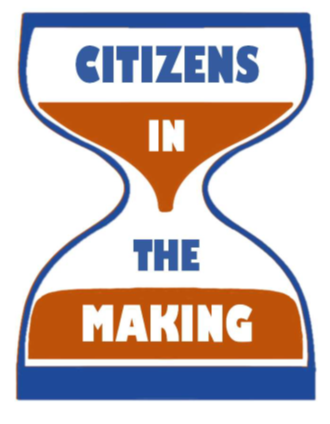
Citizens in the Making (CITM)
Co-led by Eleni Andreouli and Sandra Obradovic, in partnership with Shout Out UK (SOUK) and with Kesi Mahendran in consultative capacity. CITM seeks to reduce inequality by establishing pathways within democracy for young people, through developing political agency for meaningful participation. Our starting point is the idea of young people as ‘citizens in the making’. Whilst a ‘deficit’ model of youth citizenship would suggest that young citizens-in-the-making are incomplete citizens, we take a critical youth studies perspective which argues that young people are active political agents.
The current project builds upon an ongoing youth education and democracy project in Wales (February 2022-February 2023). The project “Educating young citizens in Wales: political engagement, citizenship and democracy from the perspectives of citizens-in-the-making”was funded by the Research Wales Innovation Fund, and was conducted in collaboration with the OU Wales office. It used a mix of qualitative methods to study the ways in which citizenship is construed and taught under the new 2022 Welsh curriculum, with a focus on the views and experiences of young people themselves. A key finding of this work was the disconnection between students’ everyday relational understanding of citizenship and related concerns, on the one hand, and the stated aims of top-down citizenship education, on the other. Our research has also identified some of the key challenges faced by teachers in implementing the citizenship elements of new curriculum (including lack of subject-specific training, resources and guidance), as well as some opportunities afforded by the new curriculum in improving provision. CITM expands on this work by exploring young citizens understandings of citizenship and democracy across England and expanding to include a nationally representative survey exploring the general populations attitudes towards democratic skills, values and knowledge and the role of the educational system in fostering these.